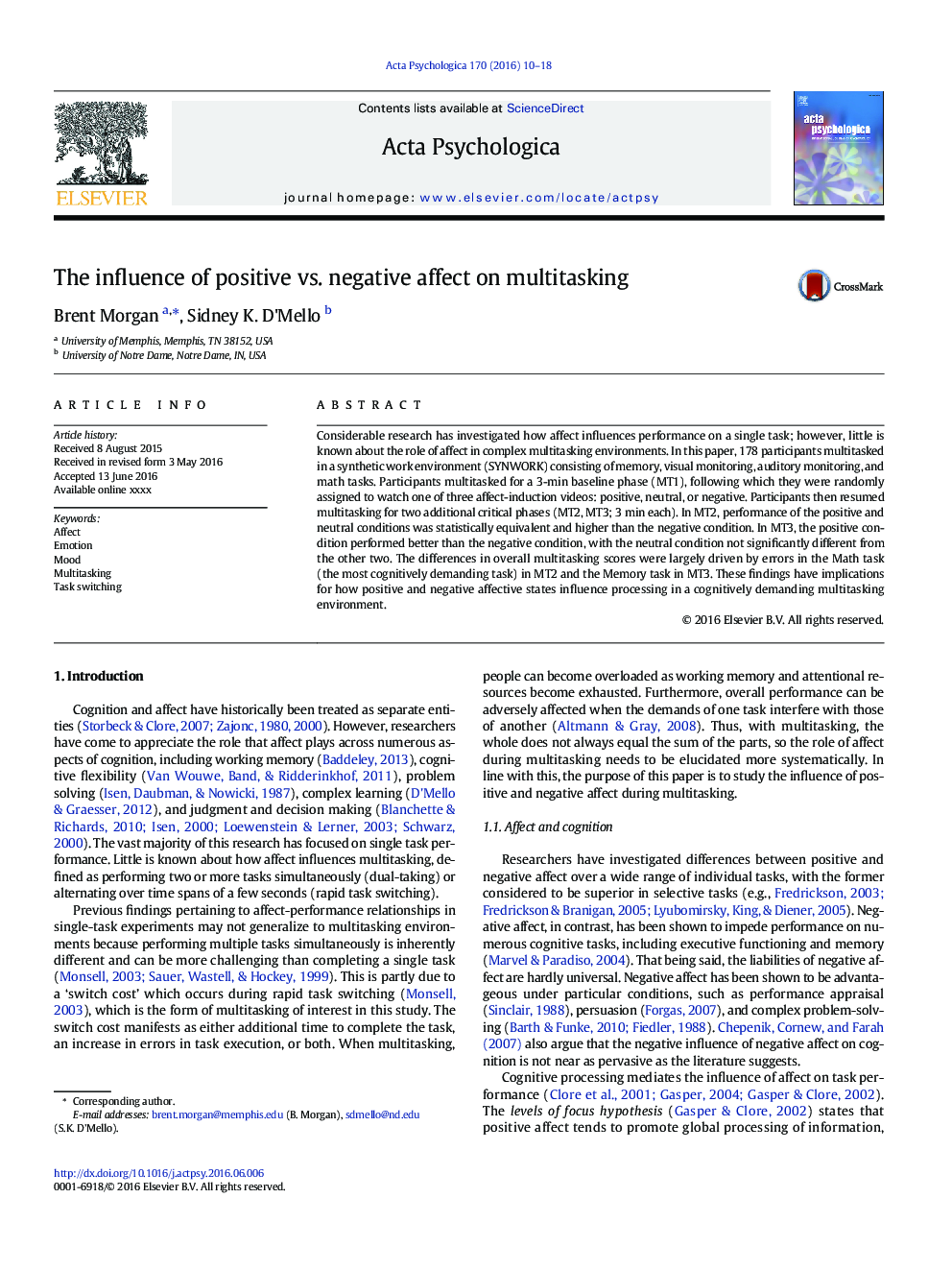| Article ID | Journal | Published Year | Pages | File Type |
|---|---|---|---|---|
| 7276940 | Acta Psychologica | 2016 | 9 Pages |
Abstract
Considerable research has investigated how affect influences performance on a single task; however, little is known about the role of affect in complex multitasking environments. In this paper, 178 participants multitasked in a synthetic work environment (SYNWORK) consisting of memory, visual monitoring, auditory monitoring, and math tasks. Participants multitasked for a 3-min baseline phase (MT1), following which they were randomly assigned to watch one of three affect-induction videos: positive, neutral, or negative. Participants then resumed multitasking for two additional critical phases (MT2, MT3; 3Â min each). In MT2, performance of the positive and neutral conditions was statistically equivalent and higher than the negative condition. In MT3, the positive condition performed better than the negative condition, with the neutral condition not significantly different from the other two. The differences in overall multitasking scores were largely driven by errors in the Math task (the most cognitively demanding task) in MT2 and the Memory task in MT3. These findings have implications for how positive and negative affective states influence processing in a cognitively demanding multitasking environment.
Related Topics
Life Sciences
Neuroscience
Cognitive Neuroscience
Authors
Brent Morgan, Sidney K. D'Mello,
